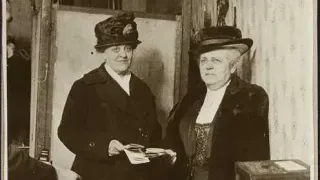
3 hours ago
Federico Bernardeschi Condemns Homophobia: “Everyone Should Be Free to Do What They Want”
READ TIME: 13 MIN.
Italian soccer star Federico Bernardeschi, currently playing for Bologna and formerly with Fiorentina, Juventus, and Toronto, has publicly addressed rumors regarding his sexuality and delivered a powerful message advocating for personal freedom and respect for LGBTQ+ identities. In a recent interview on The BSMT podcast, Bernardeschi candidly discussed the homophobia he has faced and the broader responsibility of athletes to promote healthy, inclusive values in society .
Bernardeschi’s remarks come amid persistent speculation about his sexual orientation—a topic that has dogged him since his early twenties. He recalled a moment twelve years ago when he wore pants resembling a skirt, which led to a wave of homophobic taunts and rumors. “Twelve years ago, I wore pants that looked like a skirt. Imagine the uproar that followed. But what's the problem? If I like it, I'll wear it,” Bernardeschi stated, highlighting the cultural resistance to gender nonconformity in sports .
He continued, “How many times have people called me gay? And if I liked it, do you think I wouldn't tell you? What's the problem? On the contrary, I would be proud of it. And to those... who say it – bravo: in this world, everyone should be free to do what they want. I was 20 at the time, and it was very painful. I talk about it with a laugh now, but it wasn't funny then” .
Bernardeschi’s willingness to confront these rumors head-on is significant in a sport where LGBTQ+ athletes, especially men, remain underrepresented and often face stigma both on and off the pitch. His assertion, “If I were gay, I’d be proud. What’s the issue?” directly challenges the lingering prejudices in football culture .
During the interview, Bernardeschi also reflected on the responsibilities of public figures, especially athletes, to speak out against injustice and to support marginalized communities. “I'm convinced that as public figures, we have a great responsibility to transmit healthy values. We need to speak up more often, especially about injustice in the world,” he said, underlining the importance of allyship .
He also opened up about the impact of public scrutiny and homophobic abuse on his mental health, revealing that he has sought psychological support for years to manage the pressures of professional sport and personal attacks. “I started working on myself not only last year, but three years before that. And I'm still doing it. If you understand where the problem comes from, you can fix it. Failure is a part of life, and you have to try to understand it, dig deeper, put yourself first, without blaming this or that,” he explained .
Bernardeschi’s comments were accompanied by praise for openly gay athletes who have come out and challenged the status quo. “I take my hat off to those who have come out,” he remarked, acknowledging both the courage required to be visible and the continued challenges faced by LGBTQ+ individuals in sports .
While there have been some positive developments in recent years, including more athletes coming out and greater institutional support for LGBTQ+ inclusion, homophobia and transphobia remain significant barriers within football and other sports. Bernardeschi’s advocacy aligns with a growing movement of allies who use their platforms to normalize acceptance and challenge discriminatory attitudes.
Bernardeschi’s statements have been widely covered in Italian and international media, sparking discussions about the role of straight allies in promoting LGBTQ+ rights. LGBTQ+ organizations and advocates have welcomed his stance, noting that visible support from high-profile athletes can have a powerful impact on social attitudes and young fans struggling with their identities.
The Italian sports community, which has often lagged behind other European countries in LGBTQ+ acceptance, is seeing incremental progress as more players, clubs, and governing bodies adopt explicit anti-discrimination policies and support Pride initiatives. Bernardeschi’s call for authenticity and freedom serves as a reminder of both how far the sport has come and how much work remains to achieve genuine inclusion.
The importance of Bernardeschi’s message extends beyond football. As one of the few top-level male athletes to address rumors about his sexuality with such openness and affirmation, he challenges the notion that masculinity and queerness are incompatible—a stereotype that continues to harm LGBTQ+ people in sports and society at large.
By declaring, “Everyone should be free to do what they want,” Bernardeschi situates himself as a vocal ally for LGBTQ+ rights, helping to foster an environment where all players—regardless of gender identity or sexual orientation—can participate without fear of prejudice or exclusion.
As the conversation around inclusion in sports continues to evolve, Bernardeschi’s words stand as both a call to action and a beacon of hope for greater acceptance, visibility, and equality.






